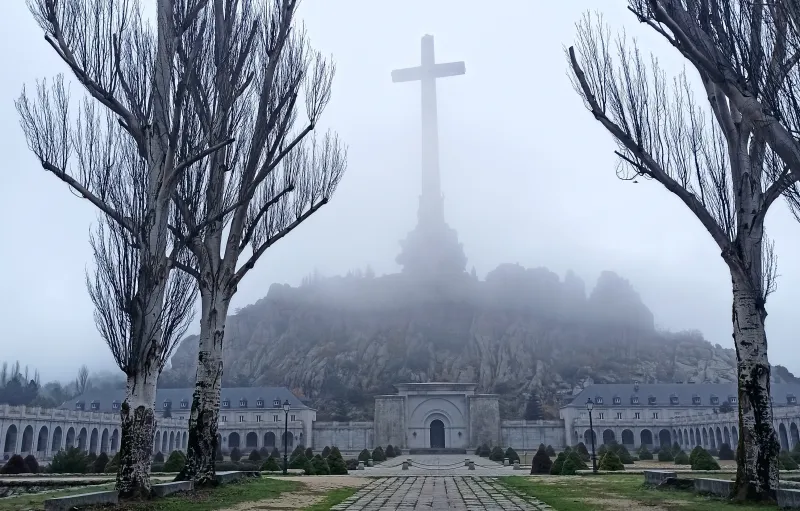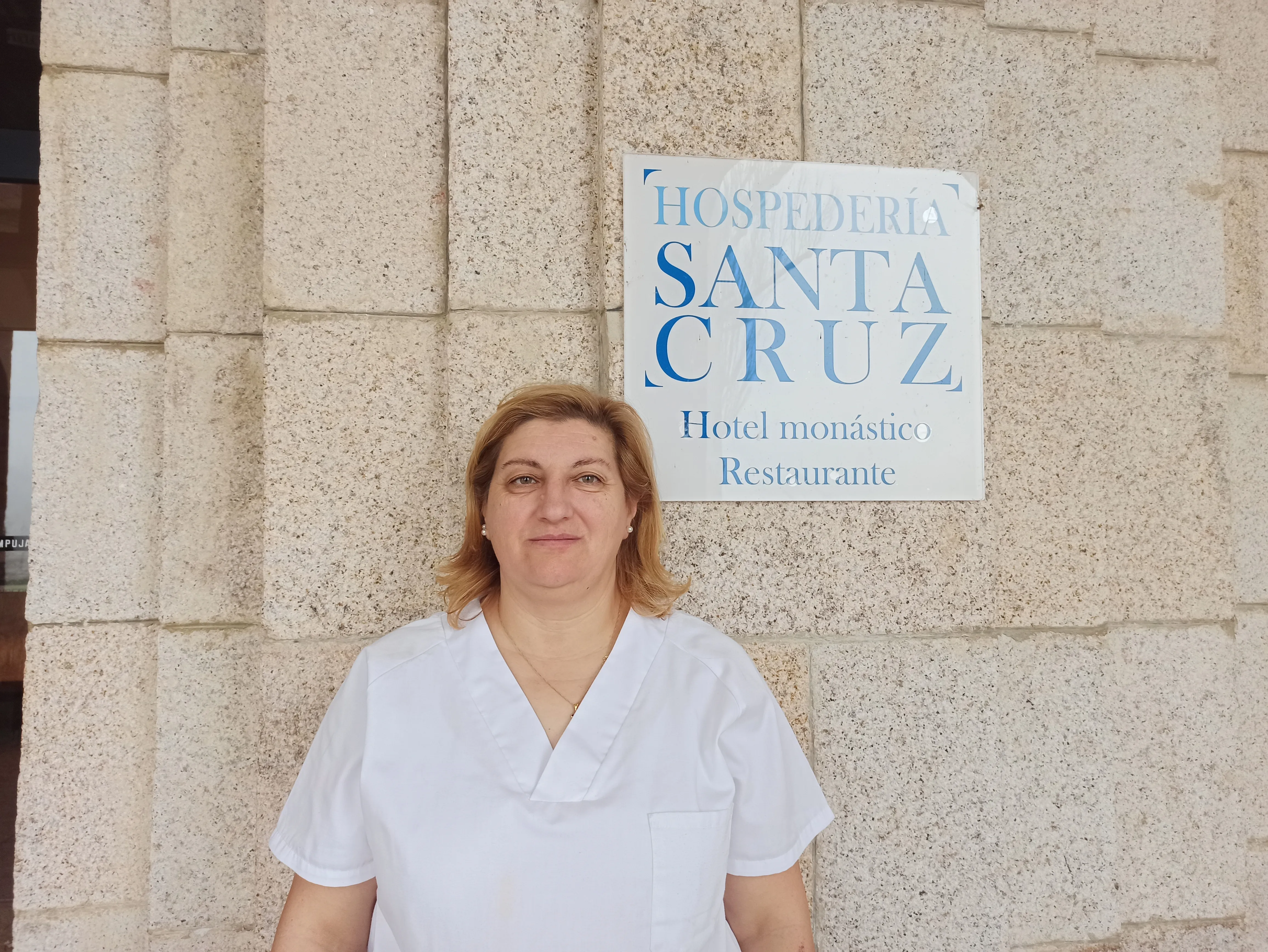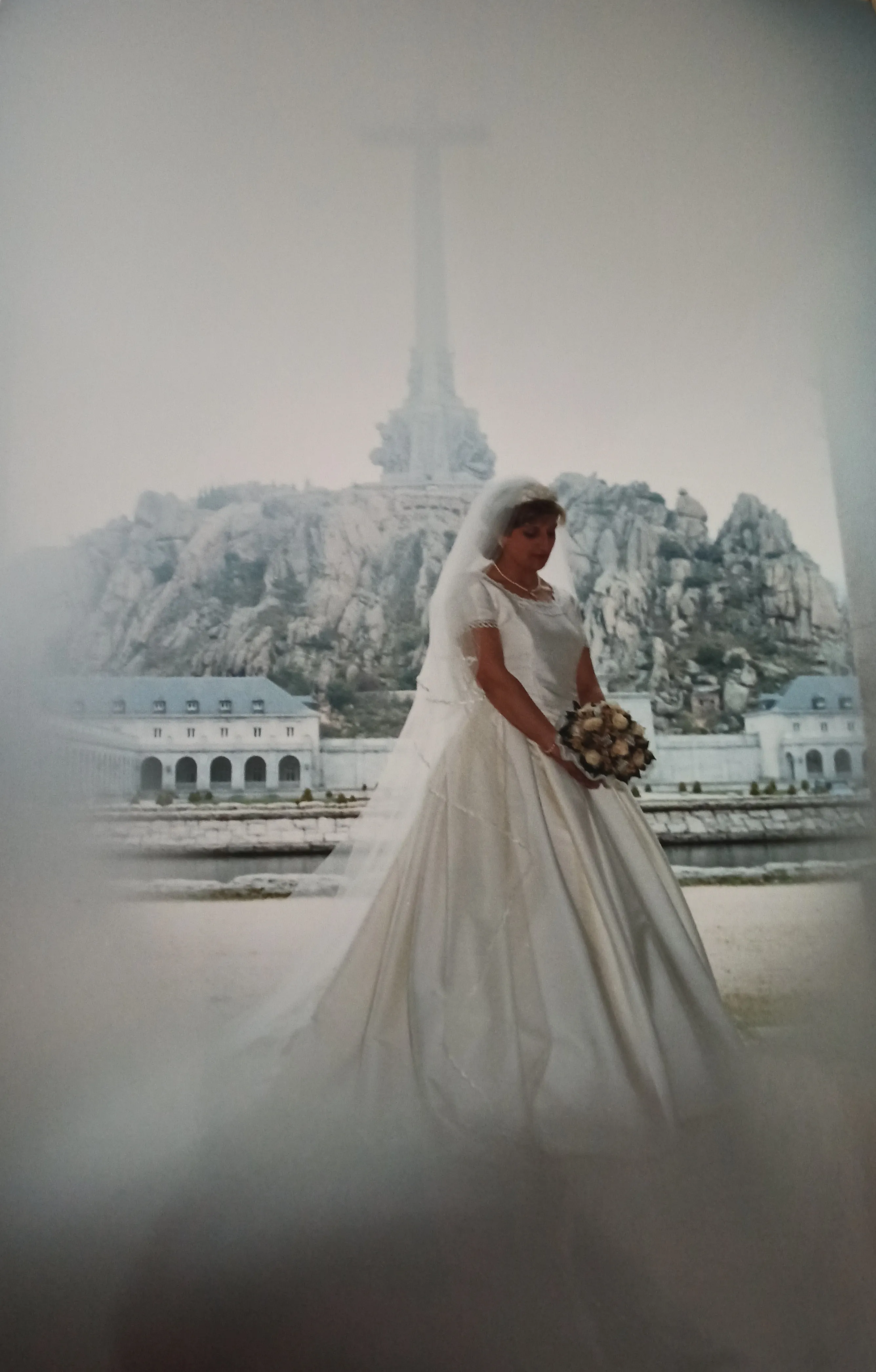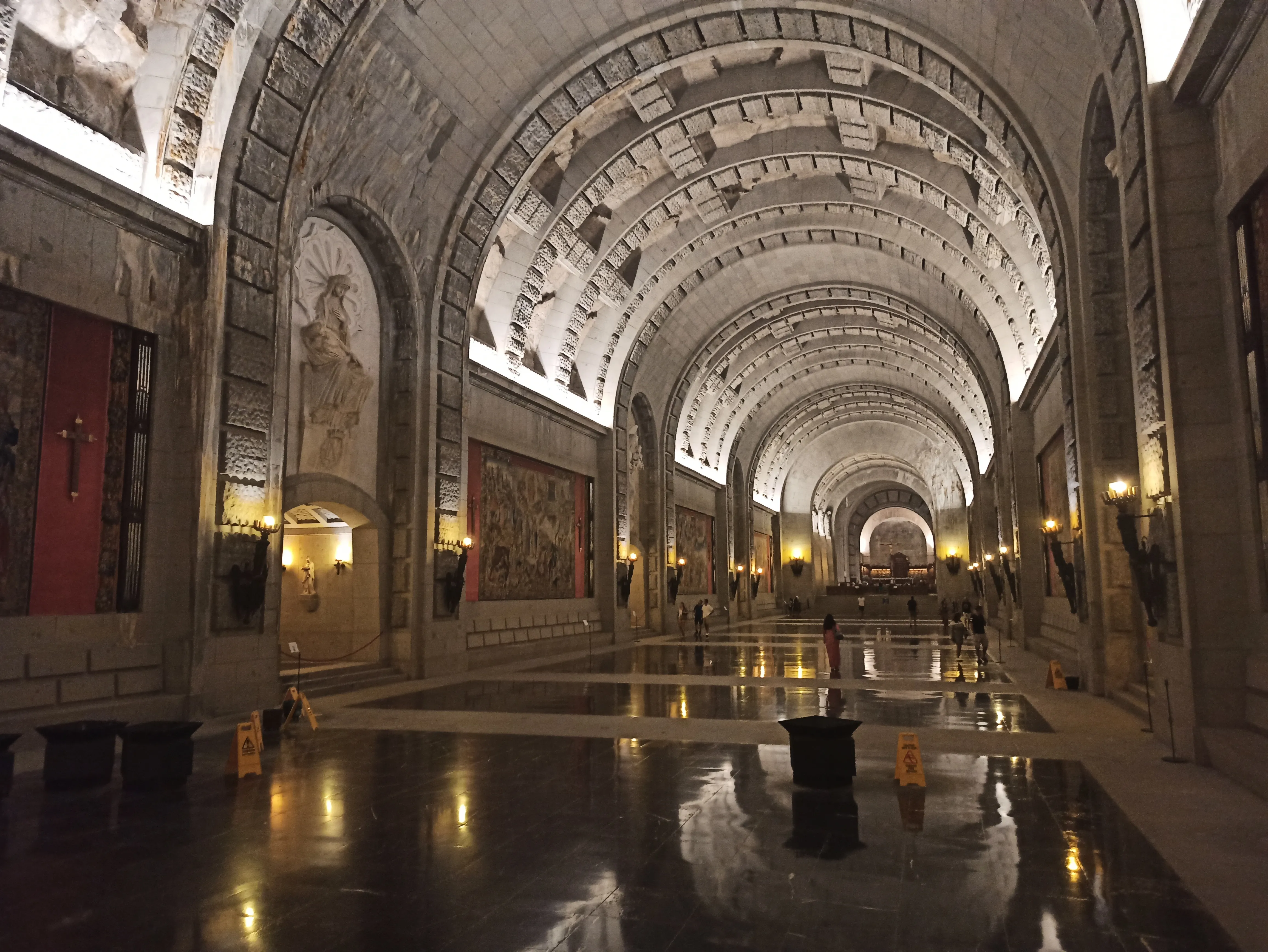
CNA Newsroom, Nov 29, 2022 / 07:05 am (CNA).
An employee says she fears losing her lifelong job at the world’s largest cross locality after the government of Spain passed a law in October to close parts of it down and “re-signify” its basilica.
Alejandra Gómez, who has worked for 30 years at the Valley of the Fallen’s guesthouse, says her biggest fear now is being fired.
“I would like for this place to remain open so that I do not end up on the street,” she said in an interview with CNA on Nov. 24 at the site.
“They are playing with the bread of many families here,” added Gómez, a mother of three. “There are many families working here.”

The Basilica of the Holy Cross of the Valley of the Fallen lies at the center of a memorial site about 28 miles northwest of Madrid.
The landmark under the towering cross includes an abbey and the basilica. The nearly 30 employees currently working at the Valley of the Fallen’s guesthouse and boarding choir school face the same uncertainty regarding their future.
Gómez came from Badajoz, a city in the southwest region of Extremadura, to work at the lodge’s restaurant when she was 22. She remembers the exact date she began working there: Oct. 21, 1992.
“I am very fond of the Hospedería because I came here very young and part of what I have is because of (my time) working here,” said Gómez, now 53. “I would be very upset if they closed it.”
She also got married at the basilica adjacent to the guesthouse, the Basilica of the Holy Cross of the Valley of the Fallen, in 2000.
“It was a wonderful experience. Regardless of how this place has been built, for me it was a wonderful day,” Gómez said. “It was all fantastic. One of the monks married us.”

She also recalled how many guests would call her “Lady Di” years ago due to her close resemblance to the former Princess of Wales. One older guest even asked her for her hand in marriage.
“It made me laugh because I thought it was funny … Of course, I said ‘no,’” Gómez said.
The guesthouse, which opened in 1958, includes a restaurant, 126 bedrooms, a gym, a chapel, a valuable library (usually closed to the public), and several lounges. It is often used as a retreat house by different religious communities, movements, and diocesan priests from across the country.
In addition to the guesthouse, the precinct includes a boarding school for boys centered on teaching Gregorian music and an abbey — all three adjacent to the underground basilica carved inside a mountain under the world’s largest cross. The monument is surrounded by 3,360 acres of woodland, which is home to wildlife, including roe deer, squirrels, foxes, and boars.
“I had only seen squirrels in cartoons, never in real life, until I came here,” Gómez said. “The people who lived in (the Valley’s) village used to hand-feed foxes. They also gave food to the wild boars.”
Changes under the new law
The government’s Democratic Memory Law entered into force on Oct. 21. One of the changes includes renaming the “Valle de los Caídos” (Valley of the Fallen) to “Valle de Cuelgamuros” (Valley of the Hanging Walls). The government’s agency running the precinct with the Benedictine monks up until now, Patrimonio Nacional, has already changed the sign at the main entrance to its new name.
The original name was “Pinar de Cuelga Moros,” which means “Pine Forest of Hanging Moors.”
Meanwhile, the region of Madrid — currently led locally by the conservative People’s Party — may declare the Valley as a “Bien de Interés Cultural” to be a “good of cultural interest,” a good in the economic sense.
The region’s local government has proposed a cultural heritage law. If approved, the law’s article 73c would mean creating a new protection for ethnographic heritage assets. But the new law, expected to be discussed and approved by May 2023, would possibly only protect the world’s largest cross and not the basilica.

It may not prevent the Benedictine monks from being kicked out, or the boarding choir school and guesthouse from being closed under the new decree currently being elaborated to establish the precinct’s new legal framework.
The Democratic Memory Law has now extinguished the “Fundación de la Santa Cruz del Valle de los Caídos” — the Foundation of the Holy Cross of the Valley of the Fallen, jointly owned up until now by both the government’s agency Patrimonio Nacional and the Benedictine monks, who reside at the site’s abbey. The foundation was in charge of operating the whole precinct.
The monks are seeking donations for their work on their website.
If you value the news and views Catholic World Report provides, please consider donating to support our efforts. Your contribution will help us continue to make CWR available to all readers worldwide for free, without a subscription. Thank you for your generosity!
Click here for more information on donating to CWR. Click here to sign up for our newsletter.






Leave a Reply